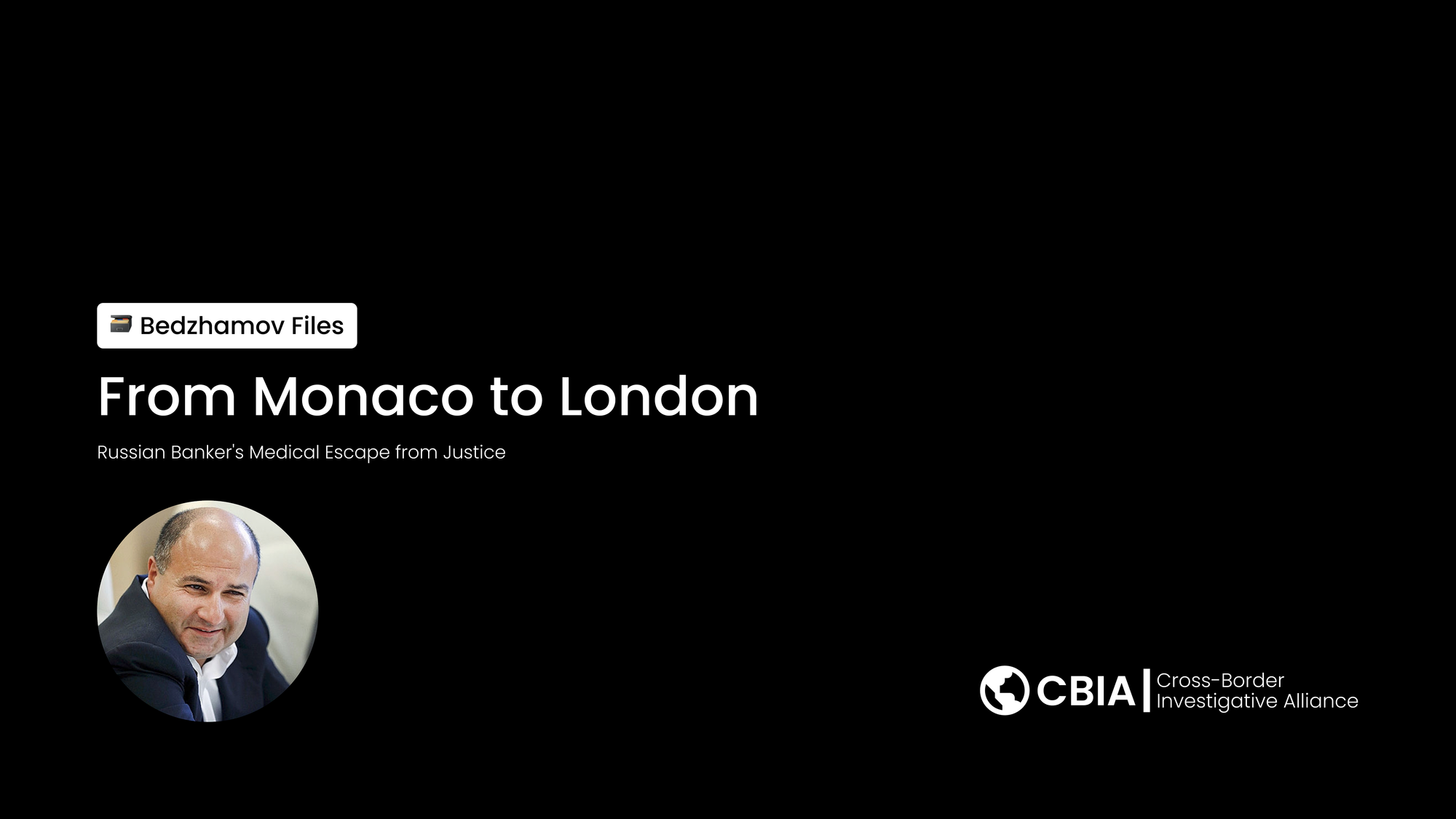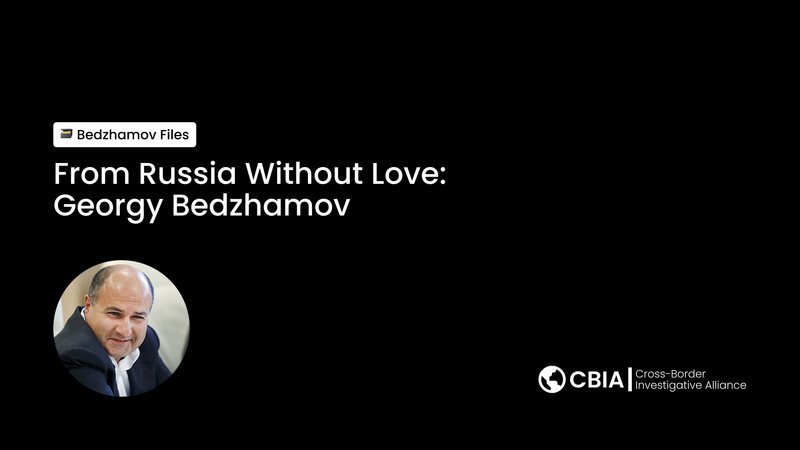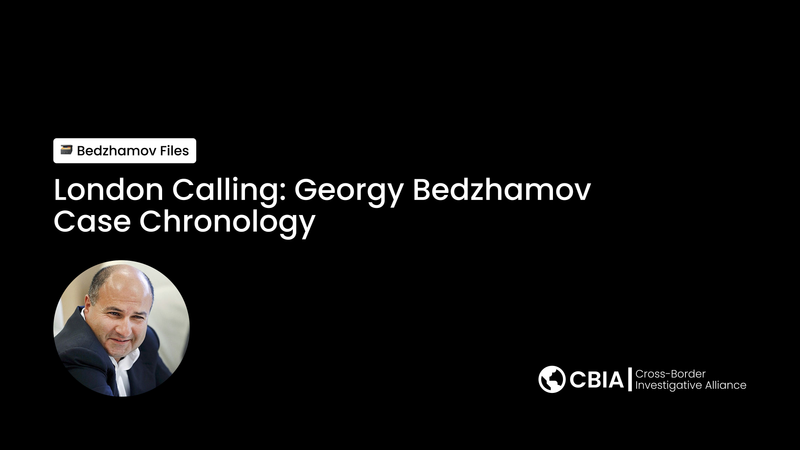From Monaco to London: Russian Banker's Medical Escape from Justice

In April 2016, Georgy Bedzhamov, the fugitive co-owner of Russia's collapsed Vneshprombank, was arrested in Monaco on an international warrant for massive fraud totaling nearly 1 billion rubles ($15.3 million). Yet by 2019, he was living luxuriously in London, successfully evading extradition through a calculated strategy that exploited medical claims and jurisdictional loopholes.
Bedzhamov's case reveals how wealthy individuals can manipulate international legal systems to escape accountability. The timeline reconstructed from court documents shows a carefully orchestrated plan that began even before Monaco's courts made their final extradition decision.
The Vneshprombank Collapse
Vneshprombank, Russia's 40th largest bank by assets, had its license revoked in January 2016 by Russia's Central Bank [1]. Investigators allege that Bedzhamov, along with his sister Larisa Markus (the bank's president), orchestrated a sophisticated fraud scheme involving fake loan agreements with unsuspecting customers, diversion of genuine customer funds, shell company loans, and fictitious credits to discharge debts [2].
Markus was arrested in December 2015 and later pleaded guilty, receiving a nine-year prison sentence that was subsequently reduced. The fraud's estimated cost exceeded 932 million rubles, with investigators claiming Bedzhamov personally benefited by approximately 35.4 million rubles [1][2].
The Monaco Detention and Medical Claims
On April 21, 2016, Russian authorities confirmed Bedzhamov's arrest in Monaco following an international warrant issued in February [1]. Initially detained in custody, Bedzhamov was moved to hospital under police guard after claiming heart problems requiring open surgery, which he underwent on February 12, 2016 [3].
These health claims became central to his defense strategy. When Russia formally requested extradition, Bedzhamov's lawyers argued that his medical condition made deportation inappropriate. Monaco's Court of Appeal ruled against extradition on July 12, 2016, with officials citing "condition of Bedzhamov's health" as the primary reason for refusal [2].
Prince Albert II of Monaco formally refused the extradition request on September 30, 2016, accepting the health-based arguments [2].
The London Relocation Strategy
However, UK Court of Appeal documents reveal a crucial detail that exposes the calculated nature of Bedzhamov's strategy: he had already relocated to London for purported "medical treatment" in late June 2016, weeks before Monaco's final extradition decision [3].
According to the court judgment, "At the end of June 2016 Mr Bedzhamov travelled to London for medical treatment and, while he was here, the attempt to extradite him from Monaco was defeated and his bail conditions fell away. He decided to remain in London, in part because he felt safer, in part for medical reasons, and in part because he considered that there would be more business opportunities here" [3].
This timeline suggests Bedzhamov had positioned himself in London before knowing the outcome of Monaco's extradition proceedings, indicating advance planning rather than a spontaneous medical emergency.
Living in London Luxury
Once established in London, Bedzhamov maintained an extraordinarily lavish lifestyle despite claiming financial hardship. Court documents detail monthly expenses exceeding £300,000, including:
- £14,750 per week rent on a Park Lane apartment
- £70,000 monthly for a Monaco apartment where his partner and children resided
- £24,000 monthly for private security in London
- £29,000 monthly for security in Monaco
- £20,000 monthly on business entertainment
- Exclusive golf club membership costing over £113,000 joining fee plus £12,000 annual fees [3]
Despite these expenses, Bedzhamov claimed to be exploring "new business opportunities" requiring maintenance of expensive lifestyle to "establish and maintain contacts amongst wealthy and powerful businesspeople" [3]. However, he was unable to identify any actual deals since leaving Russia in 2015.
The Asylum Gambit
When Russia sought Bedzhamov's extradition from the UK in May 2017, he employed another legal strategy: claiming asylum. This application effectively suspended extradition proceedings, allowing him to remain in London while the claim was processed [3].
The asylum claim appears to be another calculated move, as Bedzhamov argued that criminal proceedings against him were "politically motivated and false" [3]. This strategy has proven effective, as his asylum claim remained undetermined as of the 2019 court proceedings.
Financial Reality vs. Claims
While claiming poverty to justify avoiding Russian prosecution, Bedzhamov simultaneously argued in London courts that he required hundreds of thousands of pounds monthly for basic living expenses. UK judges expressed skepticism about his financial disclosures, particularly his claim to be worth £86 million based largely on a heavily mortgaged London property [3].
The court noted that "the true position appears to be that, far from him being worth £86 million, the net value of Mr Bedzhamov's available assets is much less and he appears to be close to insolvency" [3].
Implications for International Justice
Bedzhamov's case highlights significant weaknesses in international extradition systems. By strategically moving between jurisdictions and exploiting medical exemptions, wealthy individuals can effectively place themselves beyond the reach of justice.
The case demonstrates how:
- Medical claims can be weaponized to avoid extradition
- Advance positioning in friendly jurisdictions can create legal safe havens
- Asylum claims can be used to suspend extradition proceedings indefinitely
- Jurisdictional shopping allows forum selection for optimal legal outcomes
As of the latest court proceedings, Bedzhamov remains in London, having successfully avoided Russian prosecution for over seven years through this multi-jurisdictional strategy.
Sources:
[1] Radio Free Europe/Radio Liberty: "Fugitive Head Of Russian Bobsled Federation Detained In Monaco," April 22, 2016
[2] Russian Legal Information Agency (RAPSI): "Prince of Monaco refuses to extradite former co-owner of Vneshprombank to Russia," September 30, 2016
[3] UK Court of Appeal (Civil Division): Vneshprombank LLC v Georgy Ivanovich Bedzhamov, [2019] EWCA Civ 1992, November 19, 2019



